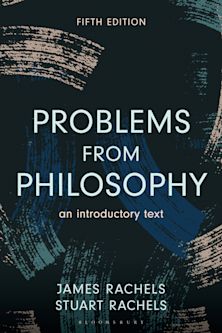- Home
- ACADEMIC
- Philosophy
- Epistemology
- Illusions of Paradox
You must sign in to add this item to your wishlist. Please sign in or create an account
Description
Modern epistemology has run into several paradoxes in its efforts to explain how knowledge acquisition can be both socially based (and thus apparently context-relative) and still able to determine objective facts about the world. In this important book, Richmond Campbell attempts to dispel some of these paradoxes, to show how they are ultimately just "illusions of paradox," by developing ideas central to two of the most promising currents in epistemology: feminist epistemology and naturalized epistemology. Campbell's aim is to construct a coherent theory of knowing that is feminist and "naturalized." Illusions of Paradox will be valuable for students and scholars of epistemology and women's studies.
Table of Contents
Part 2 Feminism and Empirical Knowledge
Chapter 3 Understanding Feminist Empiricism
Chapter 4 The Realism Question
Chapter 5 Knowledge as Social and Reflexive
Part 6 Feminism and Naturalized Epistemology
Chapter 7 Normative Naturalized Epistemology
Chapter 8 Self-Knowledge and Feminist Naturalism
Part 9 Feminism, Meaning, and Value
Chapter 10 Fact-Value Holism
Chapter 11 Meaning-Value Holism
Part 12 Feminism and Moral Knowledge
Chapter 13 Feminist Contractarianism
Chapter 14 Feminist Contractarianism Naturalized
Chapter 15 Conclusion
Chapter 16 Bibliography
Chapter 17 Index
Product details
| Published | 30 Apr 1998 |
|---|---|
| Format | Ebook (Epub & Mobi) |
| Edition | 1st |
| Extent | 304 |
| ISBN | 9781461601951 |
| Imprint | Rowman & Littlefield |
| Series | Studies in Epistemology and Cognitive Theory |
| Publisher | Bloomsbury Publishing |
About the contributors
Reviews
-
At every level-the naturalized epistemology, the feminist epistemology, and the work on moral realism-this book makes interesting contributions to topics of current debate. Campbell does a first-rate job of showing how his commitments on a wide range of topics serve to complement and reinforce one another. . . . This is an exciting book that will significantly advance discussion in the many areas to which it contributes.
Hilary Kornblith, University of Vermont
-
Campbell's proposal of a realist conception of values as well as of facts is original and provocative . . . [E]ven those who have advocated a feminist and naturalized epistemology, myself included, have not advocated scientific or moral realism. Campbell makes a strong case for the view that feminist science critique and political critique would be strengthened by realism of both sorts, and a strong case for his approach to carving out viable accounts of each.
Lynne Hankinson-Nelson, Rowan University
-
Campbell's book is well structured and most of his arguments are impressively clear and precise.
Mind: A Quarterly Review of Philosophy



































